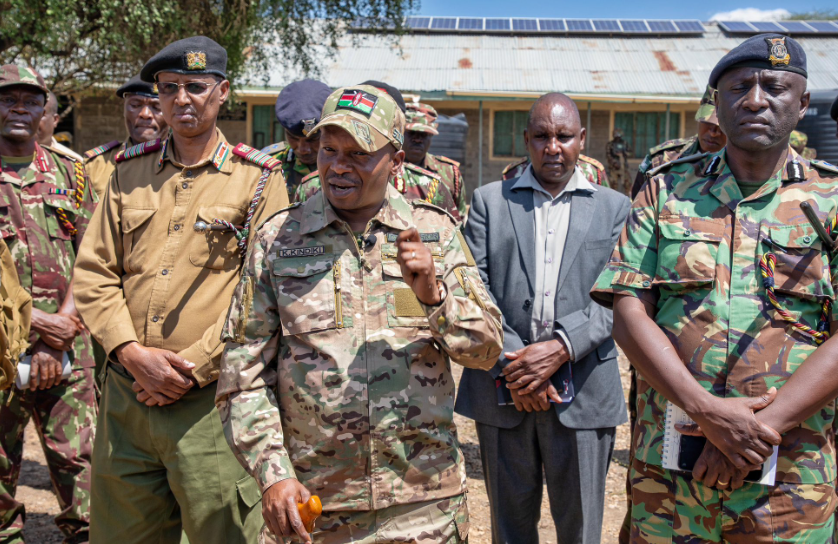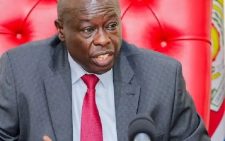How anti-terror war affects your right to associate

In the recent past, the State and a telecommunication firm have taken measures that may have largely gone unnoticed and whose import may look flawless.
On February 4, Safaricom put up a notice to the effect that from the following day, subscribers will not be able to send money from M-Pesa to unregistered customers.
On a different assignment, Interior Cabinet Secretary Kithure Kindiki declared Good News International Ministries of Pastor Paul Mackenzie a criminal organised group.
“In exercise of the powers conferred by Section 22 (1) of the Prevention of Organised Crimes Act, the Cabinet Secretary for Interior and National Administration declares Good News International Ministries to be an organised criminal group for the purposes of the Act,” read part of the Kenya Gazette notice.
The declaration came within days after the State arraigned Mackenzie and 38 others over allegations of manipulating followers to starve to death.
With the stroke of a pen, Mackenzie church joined a long list of proscribed associations, including Mungiki, Chinkororo, Gaza, Wakali Kwanza, Wakali Wao, Wakali Kabisa, Sungusungu, 7 Brothers, Kaya Bombo, 42 Brothers and Mombasa Republican Council.
Defined as “an Act of Parliament to provide for the prevention and punishment of organised crime; to provide for the recovery of proceeds of organised criminal group activities, and for connected purposes”, this law which came into force in September 2010, is in the same league as the Prevention of Terrorism Act, and the Proceeds of Crime and Anti-Money Laundering Act.
As State security agencies woke up from their slumber and descended on Shakahola forest, Kilifi county, where at least 191 children and 238 adults had been buried secretly after allegedly starving themselves to death on instructions of Pastor Mackenzie, no less a person than President William Ruto linked the ‘Shakahola massacre’ to terrorism.
“What we are seeing in Shakahola is akin to terrorism. Terrorists use religion to advance heinous acts. Mackenzie pretends and postures as a pastor when in fact he is a terrible criminal,” Ruto wrote on X .
Given the number of deaths in Shakahola, and judging from the assertions by officialdom, Mackenzie and his group seem to have been condemned unheard until and unless they prove otherwise in the fullness of time.
Never mind that under Article 50 of the Constitution, everyone is presumed innocent until proved guilty before court in accordance with the applicable law.
In the global architecture on anti-terrorism, there is a direct link between the Financial Action Taskforce (the global framework established to counter illicit financial flows, acts of terrorism and proliferation of arms) as it feeds into these actions at play as Kenya rumps up its anti-terrorism and anti-money laundering apparatus.
In the wake of September 11, 2001 attacks, in which four coordinated Islamist suicide terrorist attacks were carried out by al Qaeda against the United States, the Financial Action Task Force, a body established in 1989 by the G7 primarily to tackle money laundering had its mandate expanded to include countering financing of terrorism and proliferation of arms.
Kenya’s common border with Somalia exposes the country to extremist threats, especially from the al Shabaab and al Qaeda associated cells in the Horn of Africa. There have been nine major and roughly 20 minor terrorist attacks in Kenya.
In response to growing extremist threats and attacks, Kenya has principally adopted a security-focused approach against terrorism and money-laundering, despite recognition of the imperative for “soft approaches,” in the 2016 National Strategy to Counter Violent Extremism that affirms rights and liberties.
Mackenzie’s right to be heard before his association is declared an organised criminal group, and presumed innocent until proved guilty has been violated. In the same context, Safaricom is closing in on subscribers not registered on mobile money-transfer app, all in the name of countering illicit financial flows and terrorism.
—The writer is the Executive Director of the Kenya National Civil Society Centre
—suba_churchill@yahoo.com










